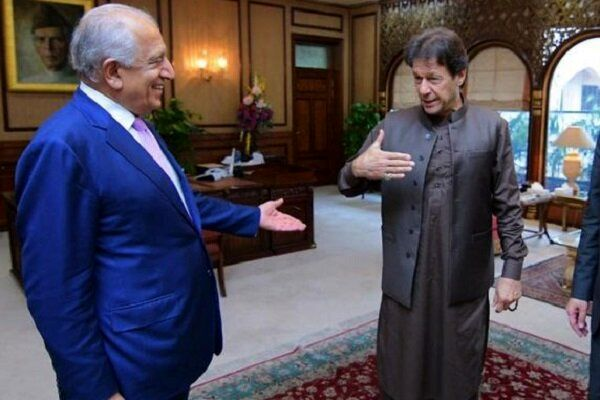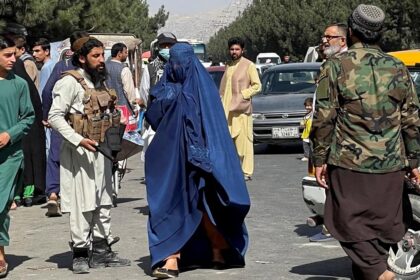RASC News Agency: As Afghanistan sinks deeper into isolation, violence, and repression under Taliban rule, a disturbing campaign of political rehabilitation appears to be taking shape led not from Kabul, but from the international and regional corridors of influence. Figures such as Zalmay Khalilzad, the former U.S. envoy who midwifed the Taliban’s return to power, and Imran Khan, Pakistan’s ousted prime minister and long-time Islamist sympathizer, are now engaged in an unmistakable effort to sanitize and re-legitimize the Taliban on the global stage.
This comes amid rising border clashes between Taliban and Pakistani forces, escalating regional insecurity, and the Taliban’s continued persecution of women, journalists, and ethnic minorities inside Afghanistan. Despite this grim reality, both Khalilzad and Khan have adopted political rhetoric that subtly recasts the Taliban not as a fundamentalist and exclusionary militia, but as a state actor capable of dialogue, governance, and regional cooperation.
Zalmay Khalilzad, once the chief architect of Washington’s failed peace diplomacy in Doha, has again positioned himself as a defender of the very group that dismantled Afghanistan’s fragile democratic order. In a recent post on X, Khalilzad applauded India’s “warm reception” of Amir Khan Muttaqi, the Taliban’s foreign minister, claiming that such engagement signaled growing “regional acceptance” of the group.
“The Taliban foreign minister was warmly welcomed in India something bound to make Pakistan uneasy,” Khalilzad wrote, in a tone critics describe as both provocative and apologetic toward the Taliban.
He went further, urging the Taliban and Pakistan to collaborate against the Islamic State–Khorasan Province (ISIS-K), suggesting that the Taliban could act as a stabilizing counterterrorism force. Such framing, analysts warn, is a deliberate distortion of reality an attempt to recast a theocratic regime steeped in extremism as a responsible security partner.
In yet another astonishing statement, Khalilzad accused Pakistan of “backing ISIS,” mirroring the exact narrative voiced by Taliban spokesman Zabihullah Mujahid only a day earlier. The linguistic and thematic symmetry of these remarks has not gone unnoticed. Many analysts now describe Khalilzad as the Taliban’s de facto international lobbyist, echoing the group’s propaganda in the polished dialect of diplomacy.
Meanwhile, across the border, Imran Khan speaking from his prison cell has renewed calls for “dialogue with the Taliban” to address Pakistan’s spiraling terrorism crisis. The former premier, whose government once sheltered Taliban leaders in guesthouses across Islamabad, Peshawar, and Quetta, insisted that “no anti-terror policy can succeed without consulting all stakeholders, including the government of Afghanistan (the Taliban).”
Experts view Khan’s statement as an indirect plea for normalization between Islamabad and the Taliban, thinly veiled as a call for peace. During his premiership, Khan’s administration granted unprecedented access, protection, and media legitimacy to Taliban leaders emboldening their eventual seizure of Kabul in 2021. Now, from behind bars, he continues to romanticize dialogue with a regime that thrives on fear, exclusion, and religious absolutism.
Both Khalilzad and Khan, operating in vastly different arenas one through elite Western discourse and the other through populist South Asian rhetoric are serving the same agenda: the rehabilitation of the Taliban’s shattered political image. Their statements emerge at a time when the Taliban’s governance record is defined by economic collapse, rampant human rights abuses, and a complete erasure of women from public life.
Even as reports surface of deadly cross-border battles between Taliban and Pakistani forces, the brutal suppression of dissent in Kabul, and China’s growing anxiety over the security of its Belt and Road investments, these two figures are attempting to breathe legitimacy into a movement that remains ideologically fossilized and morally bankrupt.
Analysts argue that these efforts at “whitewashing” the Taliban under the guise of dialogue, regional cooperation, or counterterrorism are not merely misguided but dangerous. They risk reintroducing into international diplomacy a militia that still operates with medieval political instincts, subjugates half its population, and silences opposition through intimidation and torture.
The Taliban’s supposed “political evolution” is nothing more than a carefully managed illusion, sustained by voices like Khalilzad’s and Khan’s. Their rhetoric, while cloaked in the language of pragmatism, effectively normalizes authoritarianism, granting undeserved legitimacy to a regime whose governance is rooted in religious dogma rather than national responsibility.
In reality, the Taliban remain what they have always been a movement of repression, not reform; conquest, not governance. The attempts by figures like Khalilzad and Khan to reframe them as diplomatic actors betray not only the Afghan people but also the memory of those who fought for freedom, education, and women’s rights under extraordinary peril.
Their shared project whether intentional or ideological represents a dangerous politics of amnesia: a willingness to forget that the Taliban’s rule was built on blood, coercion, and betrayal. By polishing the regime’s image abroad, these men are not promoting peace; they are laundering tyranny through the language of diplomacy.






